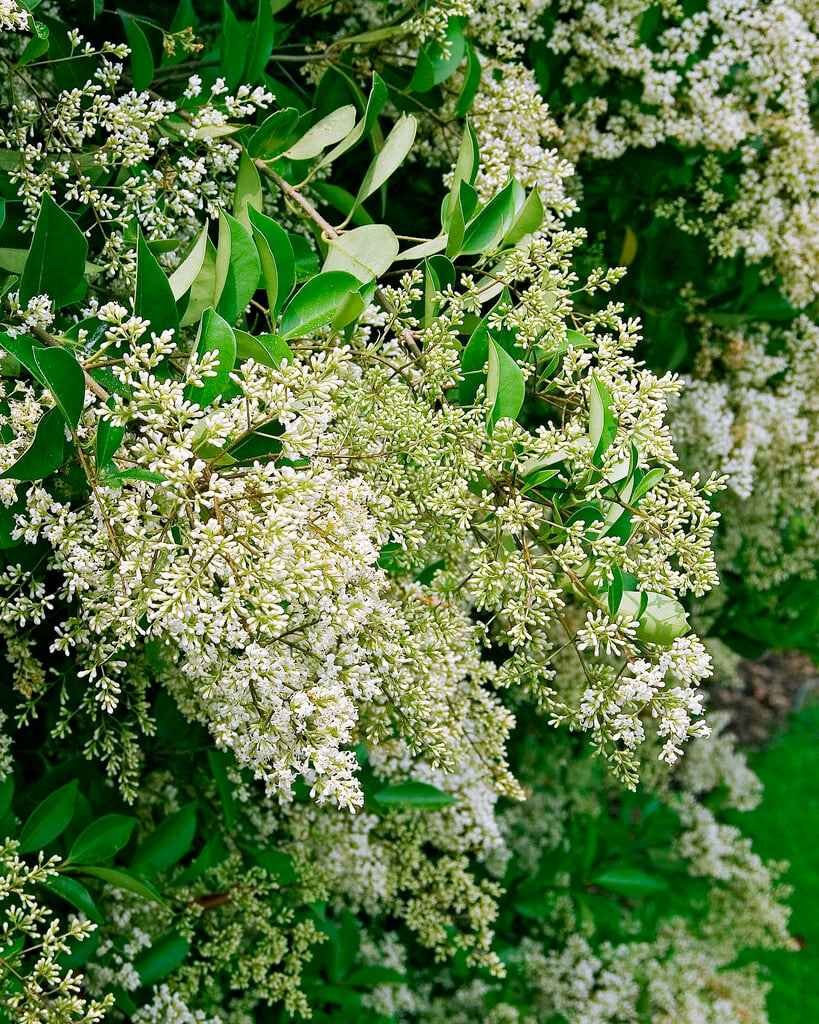Ligustrum sinense
Chinese privet
A vigorous deciduous or semi-evergreen suckering shrub, up to 4m high, with a spreading, arching habit, downy stems and elliptic to lance-shaped green leaves. Free-flowering, producing long, dense clusters of small white flowers, often on leafless lateral stems, in midsummer. These are followed by pendent clusters of blue-black berries

Buy this plant
Size
Ultimate height
2.5–4 metresTime to ultimate height
5–10 yearsUltimate spread
2.5–4 metresGrowing conditions
Moisture
Moist but well–drained, Well–drainedpH
Acid, Alkaline, NeutralColour & scent
| Stem | Flower | Foliage | Fruit | |
| Spring | Green | |||
|---|---|---|---|---|
| Summer | White | Green | ||
| Autumn | Green | Blue Black | ||
| Winter | Green |
Position
- Full sun
- Partial shade
Aspect
East–facing or South–facing or West–facing
Exposure
Exposed or Sheltered Hardiness
H5Botanical details
- Family
- Oleaceae
- Native to GB / Ireland
- No
- Foliage
- Deciduous or Semi evergreen
- Habit
- Bushy, Suckering
- Potentially harmful
- Harmful if eaten. Wear gloves and other protective equipment when handling
- Genus
Ligustrum can be decidous or evergreen shrubs or small trees, with simple, entire leaves and panicles of small, often unpleasantly scented white flowers in spring or summer, followed by black or deep purple berries
- Name status
Correct
- Plant range
- China, Vietnam
How to grow
Cultivation
Grow in any well-drained soil in full sun or part shade. Avoid planting in areas prone to waterlogging
Propagation
Propagate by seed, semi-ripe cuttings in summer or hardwood cuttings in winter. In good conditions plants often spread by seed and by suckers
Suggested planting locations and garden types
- City and courtyard gardens
- Cottage and informal garden
- Wildlife gardens
- Hedging and screens
- Flower borders and beds
Pruning
Pruning group 1; clip hedges twice in summer
Pests
May be susceptible to privet aphid, willow scale insects, lilac leaf-mining moth and privet thrips
Diseases
May be susceptible to honey fungus, white root rot, leaf spots and Verticillium wilt
Get involved
The Royal Horticultural Society is the UK’s leading gardening charity. We aim to enrich everyone’s life through plants, and make the UK a greener and more beautiful place.